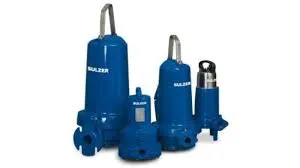Turkmen
- Afrikaans
- Albanian
- Amharic
- Arabic
- Armenian
- Azerbaijani
- Basque
- Belarusian
- Bengali
- Bosnian
- Bulgarian
- Catalan
- Cebuano
- Corsican
- Croatian
- Czech
- Danish
- Dutch
- English
- Esperanto
- Estonian
- Finnish
- French
- Frisian
- Galician
- Georgian
- German
- Greek
- Gujarati
- Haitian Creole
- hausa
- hawaiian
- Hebrew
- Hindi
- Miao
- Hungarian
- Icelandic
- igbo
- Indonesian
- irish
- Italian
- Japanese
- Javanese
- Kannada
- kazakh
- Khmer
- Rwandese
- Korean
- Kurdish
- Kyrgyz
- Lao
- Latin
- Latvian
- Lithuanian
- Luxembourgish
- Macedonian
- Malgashi
- Malay
- Malayalam
- Maltese
- Maori
- Marathi
- Mongolian
- Myanmar
- Nepali
- Norwegian
- Norwegian
- Occitan
- Pashto
- Persian
- Polish
- Portuguese
- Punjabi
- Romanian
- Russian
- Samoan
- Scottish Gaelic
- Serbian
- Sesotho
- Shona
- Sindhi
- Sinhala
- Slovak
- Slovenian
- Somali
- Spanish
- Sundanese
- Swahili
- Swedish
- Tagalog
- Tajik
- Tamil
- Tatar
- Telugu
- Thai
- Turkish
- Turkmen
- Ukrainian
- Urdu
- Uighur
- Uzbek
- Vietnamese
- Welsh
- Bantu
- Yiddish
- Yoruba
- Zulu
Telephone: +86 13120555503
Email: frank@cypump.com
Oct . 07, 2024 11:26 Back to list
chemical industry pumps
The Role of Pumps in the Chemical Industry
The chemical industry is a cornerstone of modern manufacturing, encompassing a diverse range of processes that convert raw materials into valuable products such as pharmaceuticals, fertilizers, plastics, and more. Central to these processes are pumps, which play a crucial role in the transportation, mixing, and processing of various chemicals. This article aims to explore the significance of pumps in the chemical industry, highlighting their types, applications, and the latest technological advancements.
Types of Pumps Used in the Chemical Industry
Pumps in the chemical industry can be categorized into several different types, each suited for specific applications. The most common types include
1. Centrifugal Pumps These pumps are widely used due to their ability to handle large volumes of liquids. They operate by converting rotational kinetic energy from an impeller into hydrodynamic energy, allowing them to efficiently transport liquids. Centrifugal pumps are ideal for low-viscosity fluids, making them suitable for water and many chemical solutions.
2. Positive Displacement Pumps Unlike centrifugal pumps, positive displacement pumps work by trapping a fixed volume of fluid and forcing it through the discharge pipe. This category includes gear pumps, diaphragm pumps, and peristaltic pumps. They are particularly useful for transferring viscous materials or fluids containing solids, making them a popular choice in the chemical sector.
3. Magnetic Drive Pumps These pumps utilize a magnetic coupling to eliminate the need for a mechanical seal, reducing the risk of leaks. Magnetic drive pumps are ideal for handling hazardous or volatile chemicals, making them a preferred option in environments where safety is paramount.
Applications in the Chemical Industry
Pumps are utilized in various stages of chemical processing. Key applications include
chemical industry pumps

- Transporting Chemicals Pumps transfer raw materials from storage tanks to reactors and convey finished products to storage and distribution systems. This transportation is crucial in ensuring efficient operations and minimizing downtime.
- Mixing and Agitation Many chemical processes require precise mixing of different components. Pumps equipped with mixing capabilities can blend chemicals in the desired proportions and ensure a uniform reaction, which is vital for product quality.
- Cooling and Heating Chemical reactions often generate heat, necessitating effective temperature management. Pumps are used to circulate cooling fluids or heat exchange systems, maintaining optimal temperatures for safe chemical processing.
- Waste Management In the chemical industry, managing by-products and waste is essential. Pumps are employed to transport waste materials to treatment facilities, ensuring compliance with environmental regulations.
Technological Advancements
Recent advancements in pump technology have significantly enhanced their efficiency, reliability, and safety in chemical applications. Smart pumps, equipped with IoT (Internet of Things) capabilities, enable real-time monitoring and predictive maintenance, reducing the likelihood of unexpected failures. These pumps can relay data concerning performance metrics, allowing operators to make informed decisions and minimize operational costs.
Moreover, advancements in materials science have led to the development of pumps that can handle aggressive chemicals and high temperatures. Non-corrosive materials, such as PTFE and various polymers, are increasingly used to construct pump components, extending the service life of the equipment and reducing maintenance needs.
Conclusion
Pumps are an integral component of the chemical industry, enabling the efficient and safe handling of various substances throughout the production process. With continuous advancements in technology, the capabilities of pumps are expanding, providing better safety, reliability, and efficiency. As the chemical industry continues to evolve, the role of pumps will remain critical in ensuring the sector meets the growing demands of modern manufacturing while adhering to stringent safety and environmental standards. Investing in the latest pump technologies not only enhances operational effectiveness but also contributes to a safer and more sustainable chemical industry.
-
Reliable Non-Clog Sewage Pumps with GPT-4-Turbo Tech
NewsAug.04,2025
-
High-Performance Air Pumps for Sand & Gravel | Efficient Transport
NewsAug.03,2025
-
ISG Series Vertical Pipeline Pump - Chi Yuan Pumps Co., LTD.|Energy Efficiency, Corrosion Resistance
NewsAug.03,2025
-
ISG Series Pipeline Pump - Chi Yuan Pumps | Energy Efficiency&Compact Design
NewsAug.03,2025
-
ISG Series Vertical Pipeline Pump - Chi Yuan Pumps Co., LTD.|High Efficiency, Low Noise, Durable
NewsAug.02,2025
-
ISG Series Vertical Pipeline Pump - Chi Yuan Pumps | High Efficiency, Low Noise
NewsAug.02,2025










